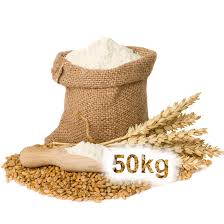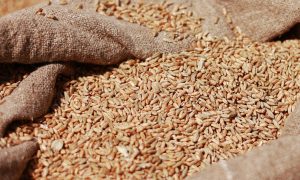Government will continue ban on wheat, flour exports: Prahlad Joshi

Union Minister Prahlad Joshi rejected requests to export wheat and flour, prioritizing domestic needs amid production challenges. Punjab’s floods and siltation threaten sowing and output, affecting key districts. The Roller Flour Millers Federation urged higher government procurement, suggesting year-end stocks rise from 7.5 mmt to 18 mmt to stabilise prices.
NEW DELHI: Union Minister of Food and Consumer Affairs Prahlad Joshi on Wednesday declined the industry’s request for permission to export wheat and flour, emphasising that domestic needs will be prioritised over exports.
India has maintained a ban on wheat exports since 2022. During his address to the Roller Flour Miller Federation of India (RFMFI), he urged the industry to help in expanding wheat acreage and increase production to meet domestic requirements and buffer stock.
Wheat production has not met expectations since 2022, hindering the country’s ability to achieve its procurement targets. The procurement levels reached 43.32 million metric tonnes (mmt) in 2021-22, but experienced a sharp decline due to adverse weather.
According to government data, procurement came down to 18.78 mmt in 2022-23 and then rose to 26.58 mmt in 2023-24; 26.59 mmt in 2024-25, and 30.02 mmt in 2025-26 during the rabi marketing season.
This year there are concerns regarding wheat production in Punjab – India’s food bowl. The state is facing severe siltation of agricultural fields due to the worst flooding in four decades, which may adversely affect wheat sowing and production.
Punjab received around 50% more rainfall than normal, according to the IMD data. In the 2024-25 procurement season, Punjab contributed 11.92 mmt, accounting for approximately 40% of the total central pool.
According to the RFMFI, five major districts in Punjab — Fazilka, Mansa, Amritsar, Ferozepur, and Gurdaspur — may experience delays in sowing due to siltation. Such delays could disrupt the wheat trading ecosystem and negatively impact both quality and production.
“Siltation has affected large areas in these districts,” said Navneet Chitlangia, president of RFMFI. “It will delay sowing and impact grain flow in the market,” Chitlangia added. The siltation has also affected areas like Kapurthala, Pathankot, and Hoshiarpur.
Experts warn that the excessive siltation could make cultivating land difficult, resulting in substantial financial losses and long-term impacts on agricultural productivity. It may also lead to ongoing land degradation, making farming in affected areas more challenging and costly in the future.
Additionally, the RFMFI has advised the government to increase procurement levels to stabilise market prices. “The government needs to keep its stocks higher than usual. The current year-end stock stands at 7.5 mmt, which should be increased to 18 mmt,” Chitlangia said.
Millers’ body asks govt to increase procurement
Additionally, the RFMFI has advised the government to increase procurement levels to stabilise market prices. “The government needs to keep its stocks higher than usual. The current year-end stock stands at 7.5 mmt, which should be increased to 18 mmt,” Chitlangia said.
To Read more about Wheat News continue reading Agriinsite.com
Source : The New Indian Express

















